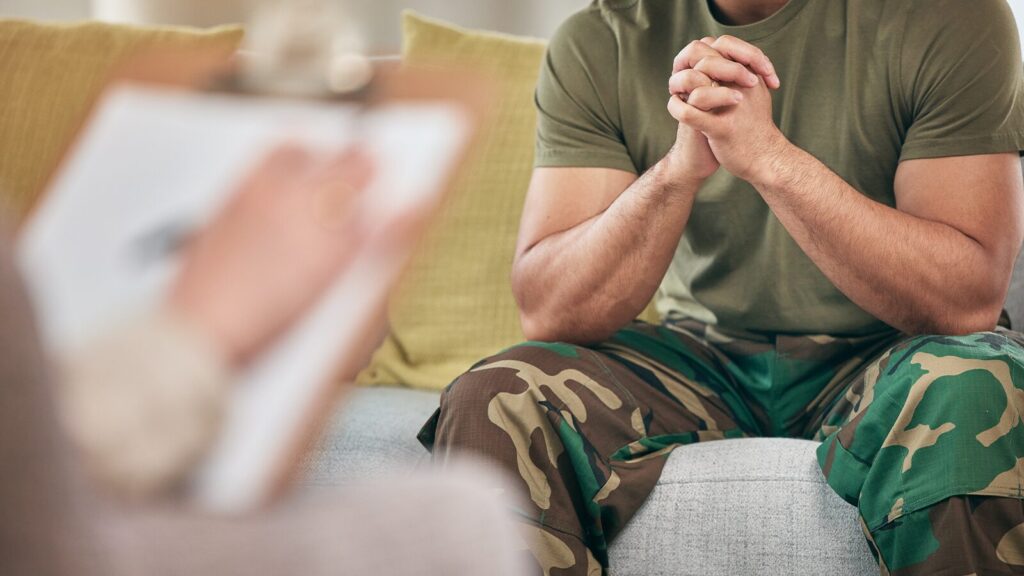
As a former counselor and presently a personal coach for pilots, I’ve had the unique privilege of coming to understand the pressures faced by aviators. These stressors only increase as you enter the further-niched world of military aviation. The demands of military aviation go beyond physical endurance requiring immense mental resilience as well. With this pressure to perform and succeed, and an ever-present stigma surrounding mental health, many aviators often find themselves in a state of avoidance from seeking the mental healthcare they might need.
This reluctance to seek help is not only a professional risk but also a personal one. Ensuring mental well-being in military aviation is crucial for both the safety of the missions and the lives of those who undertake them.
A recent study published in the Military Medicine Journal highlighted the severity of this issue. Led by U.S. Air Force neurologist and pilot Dr. William Hoffman, the study surveyed 264 military pilots and found that:
- 190 pilots (72%) reported a history of healthcare avoidance.
- 111 pilots (42.5%) admitted to misrepresenting or withholding information on a written healthcare questionnaire.
- 89 pilots (33.7%) flew despite experiencing a new physical or psychological symptom that they felt should probably be evaluated by a physician.
- 30 pilots (11.4%) reported a history of undisclosed prescription medicine use.
These statistics reveal a troubling reality – many pilots are willing to sacrifice their well-being due to fear and misunderstanding, and these are just from pilots who agreed to be a part of the study.
Understanding Why Military Pilots Might Avoid Seeking Healthcare
Drawing from my experience with civilian pilots and personal connections within the military community, I’ve seen a few reason why military pilots might avoid seeking healthcare. The fear of career repercussions is a significant factor, as many pilots worry that admitting to mental-health struggles could lead to disqualification from flying. The military’s culture, which emphasizes resilience and toughness, can further discourage individuals from seeking help, as it may be seen as a sign of weakness. Additionally, the self-reliance ingrained in many pilots, both civilian and military, often leads them to believe they can handle their issues independently, without professional support. These factors create a complex barrier to seeking care, which can have serious consequences.
How We Can Improve Mental Healthcare for Military Pilots
We are doing a disservice to our service members if we don't take decisive action to improve mental healthcare in military aviation. Here’s how we can start:
- Normalize Mental Healthcare: It’s essential to continue to work on making mental healthcare a routine part of military life, just as physical health check-ups are. This will help reduce the stigma and make it easier for pilots to seek help without fear.
- Protect Confidentiality: Establishing strong safeguards around the confidentiality of mental healthcare is crucial. Pilots need to trust that seeking help won’t jeopardize their careers, bearing in mind that seeking help does not mean someone has a severe mental health diagnosis. Strict confidentiality protocols can help build that trust.
- Promote Education and Awareness: Regular training and resources should be provided to help pilots and their leadership understand the importance of mental healthcare. Early intervention can be lifesaving, and it’s important to convey that seeking help is a sign of strength, not weakness.
- Enhance Support Systems: Continuing to build a robust support system that includes peer networks, counseling, and access to mental-health professionals familiar with the unique pressures of military aviation can encourage pilots to seek the help they need without fear.
Dr. Hoffman emphasizes that, “Aviators who may be wondering whether to report a troubling health condition should do so sooner rather than later,” especially given how self-reliant most pilots are trained to be. In other words, it’s better to say something, because by the time most pilots reach a point where they are considering asking for treatment, things have likely gone far beyond the point where they needed to be.
Bridging the Gap: Supporting Mental Health
My experience and connections have given me a deep respect for the unique challenges faced by our military aviators. By continuing to foster a culture of understanding and support, we can ensure that our military pilots are not only physically fit but also mentally prepared to take on the immense challenges they face in the military and civilian world. This is our way of giving back, and doing anything less than this is a disservice to those who have dedicated their lives to serving our country.
If you have any questions or would like to chat about options to discuss anything you or someone you know might have going on, please feel free to reach out to me at Shannon@aviationconversations.com, because everyone deserves a safe space to land, including you.
Shannon Torres
Counselor Gone Coach
Owner & Founder of Aviation Conversations
Stress Management & Personal Coaching for Pilots

































































































































